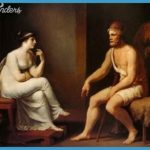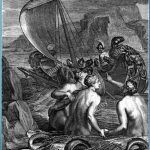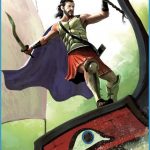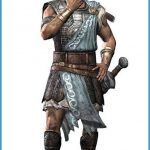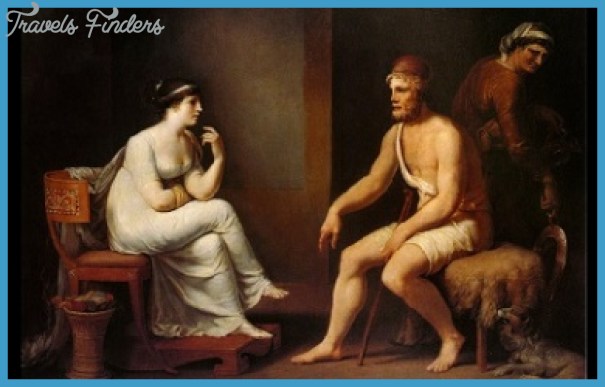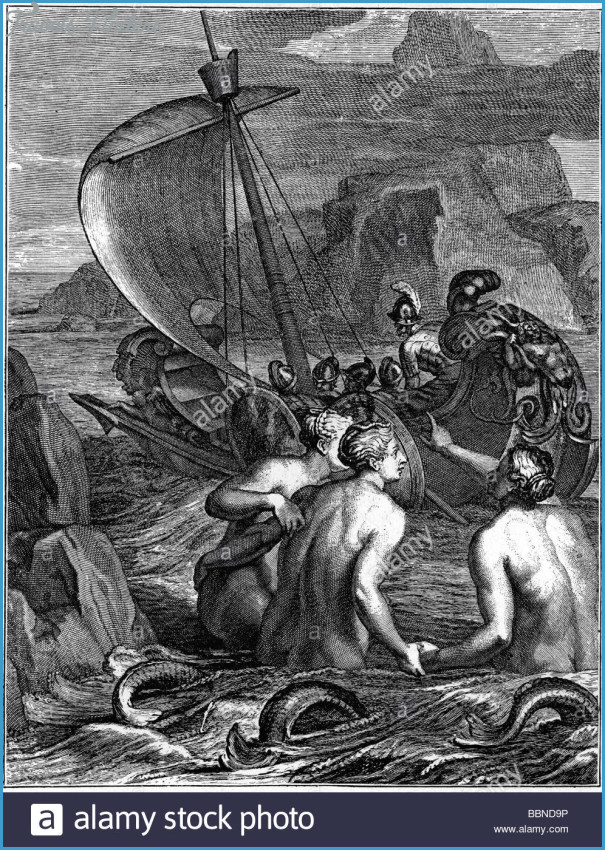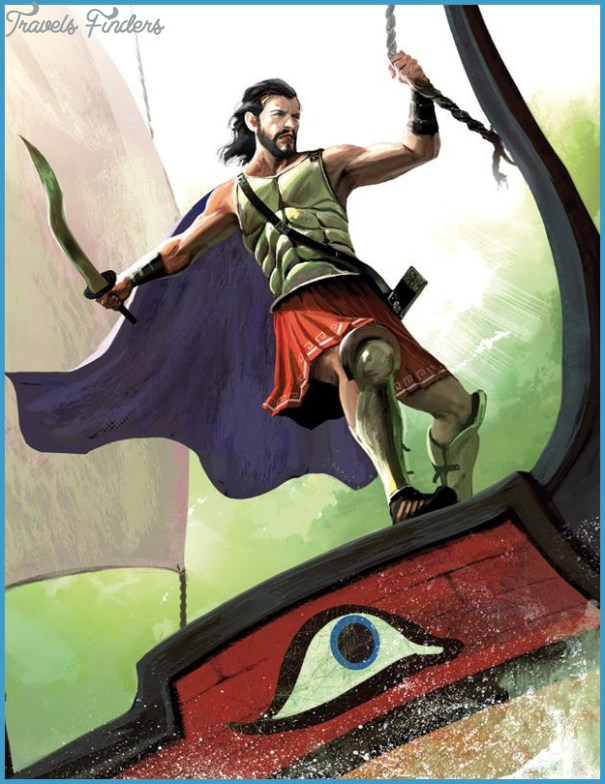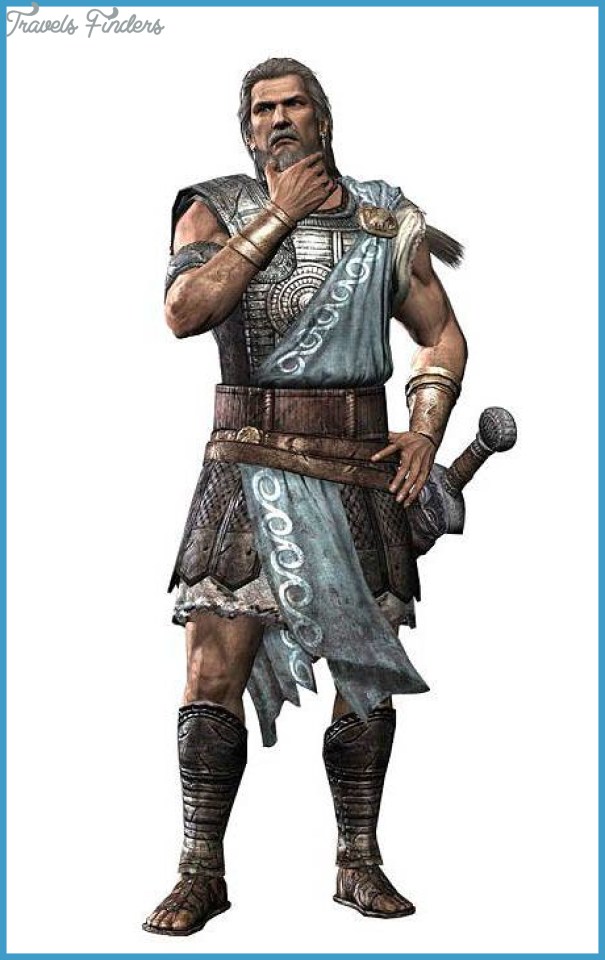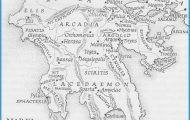Odysseus belonged to a dynasty of island kings, all only sons. Most were of doubtful parentage. His (supposed) grandfather, Arcesius, was said to be the son of either Zeus or the hero Cephalus. The Athenian Cephalus had been the reluctant and temporary paramour of Eos, goddess of the dawn. Then, in a hunting accident, he tragically killed his true love, Procris (who had returned to him after an affair with King Minos of Knossos). As Cephalus mourned her fate, an oracle advised him to mate with the first thing he came across. This turned out to be a she-bear, but no sooner was the deed done than it changed into a beautiful young woman, Arcesius’ mother. Later, in gratitude for helping Amphitryon defeat Taphians raiding Mycenae, Cephalus received the island which now bears his name – Cephalonia, just west of modern Ithaca.
The Kings of Ithaca Photo Gallery
Arcesius married Chalcomedusa (‘Cunning with Copper’), fathering Laertes, a king who, as he reminisces in the Odyssey, expanded Ithacan rule to include Nericus, the well-built citadel on the mainland shore’. In turn Laertes married Anticlea, the daughter of Autolycus, a notorious trickster (a human Hermes), but when she bore a son gossips suggested that Laertes was not his father. They remembered how, when Anticlea still lived with her father near Delphi, Autolycus stole cattle belonging to Sisyphus the king of Corinth, himself an inveterate deceiver. Sisyphus traced his beasts to Autolycus’ byres, where, while finessing their release, some claimed he slept with Anticlea, either with or without her consent.
Now Autolycus sailed to Ithaca to see his grandson.
After supper, Eurycleia [the boy’s nurse] placed the baby on his knees and said to him: Autolycus, you must find a name for the grandson you have longed for for so many years. Autolycus replied: My daughter and my son-in-law, give him the name that I shall tell you. I hold such anger against so many people, men and women, across the bounteous earth. So let him be called Odysseus [‘The Angry One’]. And when he reaches manhood, send him to his maternal home on Mount Parnassus, where I store my possessions, so that I may give him some and send him home rejoicing.’
In due course, Odysseus travelled to Mount Parnassus, where he took part in a boar hunt with his uncles. But when Odysseus ran in close and speared it, the dying boar sliced Odysseus’ leg with its tusk, inflicting a dangerous, deep wound. His uncles ran to help him, binding his wound and singing spells, before carrying him back home. The wound healed, but its scar (in Greek, oule) remained, a physical reminder, lending him another name: Ulysses.


